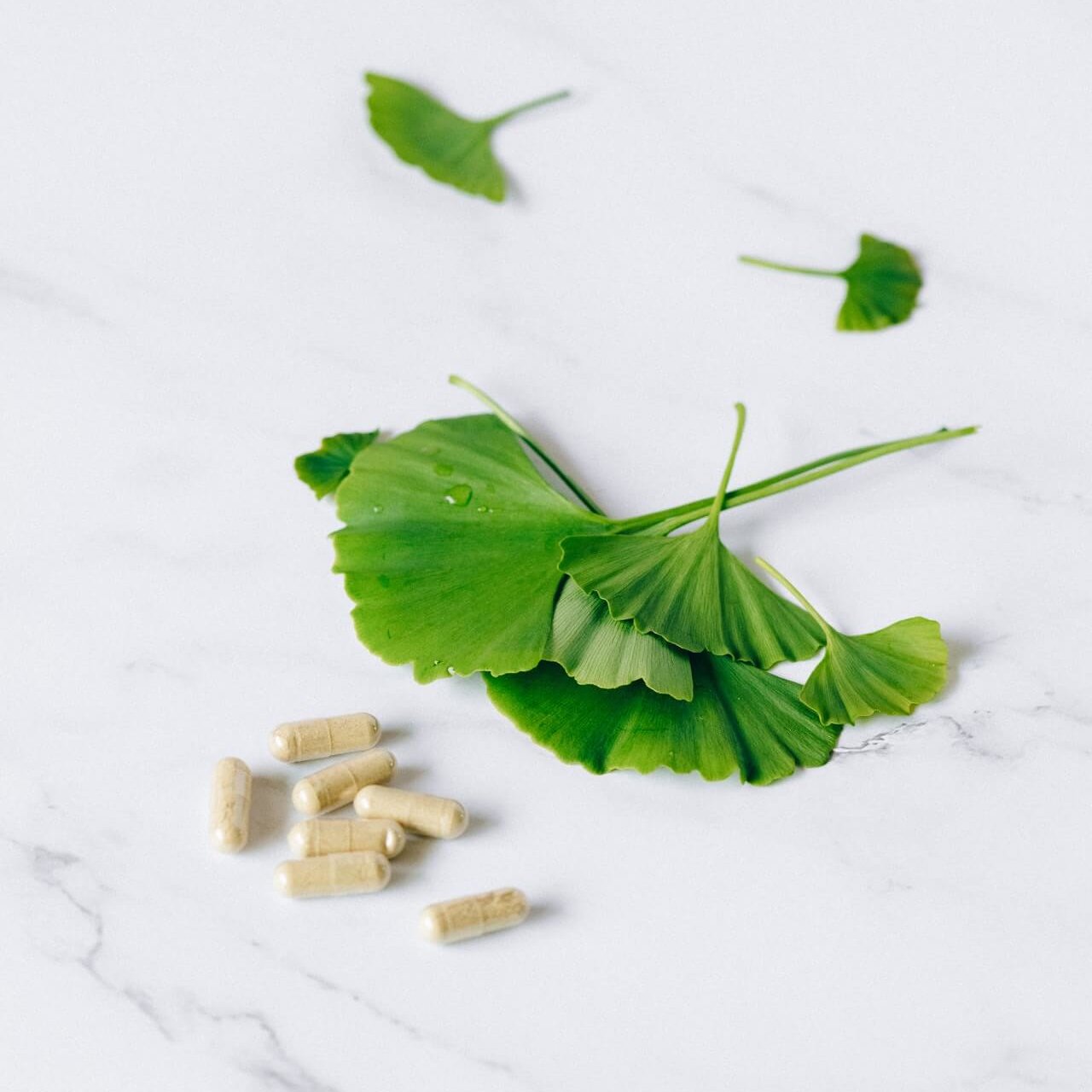
If you follow a plant-based diet, vitamin B12 is probably on your radar – and it should be! This is one nutrient you need to supplement. Here’s why.
Often flagged as the most important nutrient to be aware of on a plant-based diet, vitamin B12 (also known as cobalamin) is required for normal blood function and neurological health, and deficiency is serious. There are plenty of myths surrounding B12, so let’s learn how to ensure adequate intake. B12 is produced by certain bacteria (not by animals, as some people believe) when in environments containing the mineral cobalt, which makes up part of the structure of vitamin B12. Animal products can be high in B12 because animals obtain it from bacteria in the food (or faeces!) they eat, or are able to synthesise it in their guts.
Historically, traces of soil left on foods grown in nutrient-rich environments and unsanitised drinking water were likely to have been regular sources for early humans. However, this is no longer the case. We now (quite rightly) sanitise our water supply and wash our vegetables thoroughly to avoid ingesting pathogens. Also, in part due to intensive farming practices, soils have been depleted of many nutrients globally. As a result, even farmed animals are commonly given B12 supplements.
Is there B12 in plants?
There have been many claims made about natural plant sources of B12, with certain foods such as seaweed, spirulina, mushrooms, and fermented foods reported to contain it. While some of these foods do in fact contain B12, in most cases this appears to be predominantly in ‘inactive’ forms. These do not fulfil the important functions of ‘active’ forms in the body, and can even block uptake of the active B12! Even where the B12 does appear to be in a form that we can absorb, we’d be hard-pressed to consume enough of that particular food to meet our daily needs. The key message is that none of these foods have been shown to improve the B12 status of humans and therefore cannot be relied upon for adequate B12 intake.
Because B12 is produced by bacteria, some is formed in our bacteria-laden guts (or colons); however, this isn’t able to be absorbed into our bloodstream because B12 absorption occurs higher up in our digestive tract, in the small intestine. As a result, there are only two non-animal food sources of vitamin B12: supplements and fortified plant foods.
Fortified foods are those that have had B12 added to them during processing, like nutritional yeast, certain meat substitutes, and some plant milks. The B12 content of fortified foods can vary considerably between brands and batches. To obtain and absorb enough vitamin B12 from these foods, they need to be consumed at multiple times over the day and often in quantities that exceed standard serving sizes. For this reason, it’s always preferable to also take a supplement rather than relying solely on fortified foods.
So, are omni diets better?
While there’s no denying animal products do contain B12, we can safely say that this limited benefit is outweighed by the costs. This is because animal products come packaged with certain harmful properties, including known cancer-promoting agents, production of TMAO (a significant causal factor in our number one killer, heart disease), saturated fats that promote insulin resistance, inflammation, and numerous other risks including overall increased mortality. By contrast, wholefood plant-based diets are associated with reduced risks of diabetes, heart disease, many cancers, autoimmune diseases, and much more. Further, animal farming promotes antibiotic-resistant infection risks and the emergence of zoonotic diseases that transfer from animals to humans. So, we can safely say it’s preferable to eat a healthy plant-based diet with a cheap and effective B12 supplement than it is to eat animals!
Deficiency isn’t just a vegan problem
People avoiding animal products aren’t the only ones at higher risk of developing a B12 deficiency. As we age, we often become less efficient at absorbing B12 from animal products, which puts anyone over age 50 in the higher risk category. Those with gastrointestinal conditions such as Coeliac disease and Crohn’s are also at higher risk as they may also absorb less B12. There’s also a small percentage of the population with a condition known as ‘pernicious anaemia’, which prevents vitamin B12 from being absorbed. And, particular medications can reduce B12 absorption, namely, proton-pump inhibitors, which are used to manage reflux and Metformin (also called Diaformin), a diabetic drug.
So, what happens when we don’t have enough B12 in our bodies? A deficiency can lead to serious consequences and even death if it isn’t detected and treated early on. In the early stages, it often presents similarly to iron deficiency with fatigue being a common symptom, as well as a loss of appetite and nausea. There are many other ways that a B12 deficiency can show up, including tingling or numbness of hands and feet, mild depression, and diarrhoea. Neurological symptoms are some of the most concerning effects of a prolonged or pronounced B12 deficiency, as they tend to be irreversible and can develop into serious conditions like dementia. Even a mild B12 deficiency can increase risk of dementia, and once a dementia diagnosis paired with a B12 deficiency has been made, supplementing is no longer able to improve cognitive function.
Anyone who displays symptoms of a B12 deficiency or who has had a low B12 reading when last tested, should have their B12 status checked. Those at higher risk of developing a deficiency, including vegans, should have routine testing done, especially if they aren’t following a regular and adequate supplementing regime. It’s particularly important to ensure you have adequate levels while pregnant or breastfeeding, as the B12 status of mum determines that of baby.
The most common test GPs order for this is a serum vitamin B12 test. However, this test isn’t always an accurate indicator of B12 status because it can show ‘false positive’ results, where the level looks to be in the normal range, but the person is actually deficient. To get an accurate B12 status reading, I recommend an MMA (methylmalonic acid) test. MMA is related to B12 metabolism and our levels increase if we become B12 deficient. So, next time you’re due for a B12 test, ask your GP for an MMA blood or urine test rather than a serum vitamin B12 blood test (this may come at an out-of-pocket cost).
Smart supplementation
Supplementation is recommended to start within the first few months of reducing or eliminating animal products from your diet. Our bodies store some B12 in the liver and muscles, so we can usually go a short time without supplementing before signs of a deficiency develop. There are various methods of supplementing – oral (sprays, chewables, or capsules), sublingual (sprays or dissolvable tablets under the tongue), and intramuscular injections. I always recommend an oral supplement as the safest, most effective and practical way to ensure adequate vitamin B12 status.
Injections are equally safe and effective but are less practical for most. Sublingual supplements do not appear to be any more effective at ensuring effective absorption of B12 than oral supplements, and are less well-studied than oral forms.
Most supplements are in the form of either methylcobalamin or cyanocobalamin (which is converted into the body’s usable forms when consumed). Despite the common notion that methylcobalamin is the active form and the most easily absorbed by the body, the best form to take is cyanocobalamin, except in a few special cases. The cyanocobalamin form is the most extensively studied, stable, and effective form for raising and maintaining adequate B12 status, so it is extremely reliable.
Absorption of B12 is complex and only small amounts can be absorbed at a time, so supplement doses are much higher than the recommended daily intake. Either smaller daily doses of B12 may be consumed or much larger doses can be taken on a less frequent basis to maintain adequate B12 status.
In general, healthy vegan adults can ensure adequate intake with a daily supplement of 100–250mcg of B12 in the cyanocobalamin form. Alternatively, a larger weekly dose of 2500mcg can be taken. It’s a good idea to discuss your B12 status and supplementation needs with a qualified health professional to ensure a personalised approach, because absorption can vary between individuals depending on their overall health, life stage, specific conditions, and medications.
My best advice is to find a GP or dietitian who specialises in plant-based diets. You can find listings of these on the Doctors For Nutrition website.
***
Vitamin B12 is essential for human health and it is important to have a solid plan in place to obtain it when following or considering a plant-based diet. As an Accredited Practising Dietitian who specialises in plant-based nutrition, I firmly believe that everyone can reap the enormous benefits of this healthy, compassionate, and sustainable lifestyle. As part of this, maintaining adequate B12 levels is important and, fortunately, easily achieved through inexpensive supplementation.





















